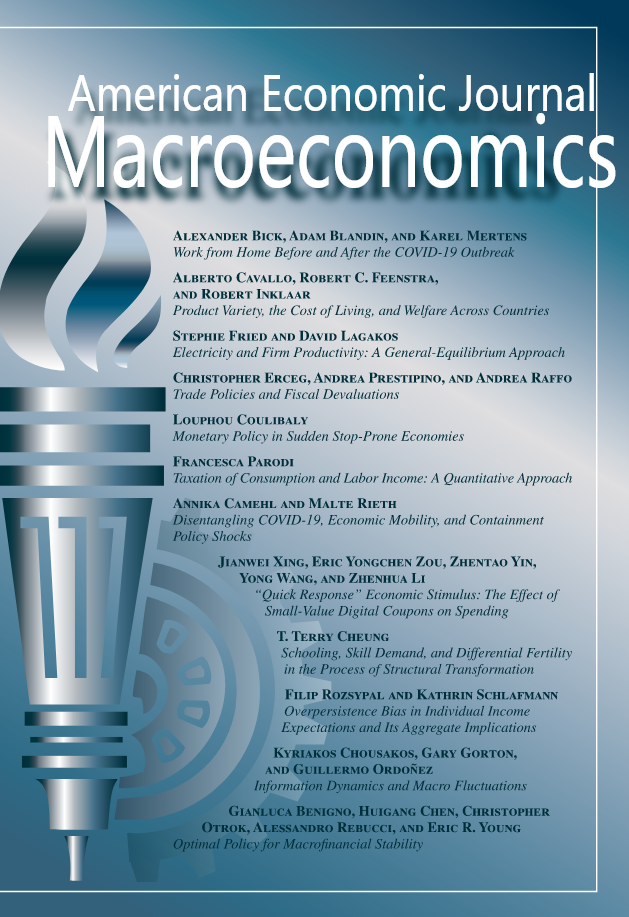产品种类、生活成本和各国的福利
IF 5.7
1区 经济学
Q1 ECONOMICS
引用次数: 1
摘要
我们使用Melitz(2003)模型的结构来计算47个国家的生活成本和福利,并将其与国际比较项目(ICP)的传统价格和实际消费指标进行比较。生活成本的推断不直接使用贸易商品的ICP价格,而是依赖于产出价格、开放程度、国内贸易成本和由条形码或公司数量衡量的产品种类。我们发现,大多数国家相对于美国的福利低于实际消费所显示的水平,但与中国和日本相似,一些欧洲国家与美国相似或更高。(凝胶e21, e23, e31, o11)本文章由计算机程序翻译,如有差异,请以英文原文为准。
Product Variety, the Cost of Living, and Welfare across Countries
We use the structure of the Melitz (2003) model to compute the cost of living and welfare across 47 countries, and compare these to conventional measures of prices and real consumption from the International Comparisons Project (ICP). The cost of living is inferred without directly using ICP prices of traded goods and instead relying on output prices, openness, domestic trade costs, and product variety measured by the counts of barcodes or firms. We find that welfare relative to the United States is lower than indicated by real consumption for most countries, but similar in China and Japan and similar or higher in some European countries. (JEL E21, E23, E31, O11)
求助全文
通过发布文献求助,成功后即可免费获取论文全文。
去求助
来源期刊

American Economic Journal-Macroeconomics
ECONOMICS-
CiteScore
8.20
自引率
1.70%
发文量
58
期刊介绍:
American Economic Journal: Macroeconomics focuses on studies of aggregate fluctuations and growth, and the role of policy in that context. Such studies often borrow from and interact with research in other fields, such as monetary theory, industrial organization, finance, labor economics, political economy, public finance, international economics, and development economics. To the extent that they make a contribution to macroeconomics, papers in these fields are also welcome.
 求助内容:
求助内容: 应助结果提醒方式:
应助结果提醒方式:


